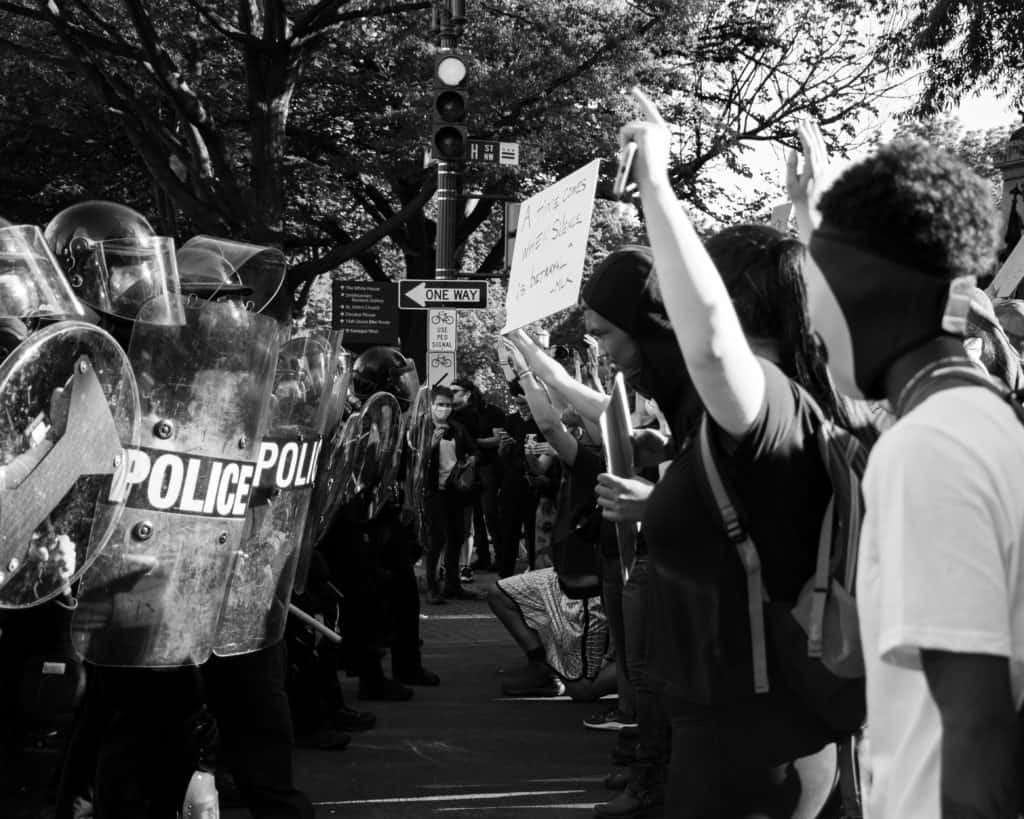The death of George Floyd and subsequent nationwide protests have brought new visibility to the connection between police brutality, criminal justice and public health. Now, medical professionals are substantiating claims from activists regarding the harmful impacts of institutionalized racism. Several physicians’ associations recently released statements condemning police brutality, emphasizing racism as a public health issue and advocating for systemic change. Law enforcement violence rooted in racism contributes to adverse physical and mental health outcomes, particularly among marginalized groups like Black Americans. However, by addressing the underlying sources of police brutality through structural change, governments and communities can prevent further acts of brutality and improve the overall health of the public.
Police violence perpetually threatens the physical health of Black Americans. In 2019, police killed an estimated 1,099 individuals in the United States. Black people were three times more likely to be killed by police than White people. Additionally, police interventions can take a physical toll on victims through injury. The Centers for Disease Control and Prevention (CDC) estimated that 85,075 nonfatal injuries occurred in 2018 due to legal intervention. One study found Black people were almost five times more likely to have a police intervention-related injury than White people. These injuries can be so severe that they lead to hospitalization, disability and death.
Racism and discrimination can increase the risk of chronic diseases such as cardiovascular disease, hypertension and mental illnesses in the Black community. Even the presence of law enforcement may be linked to increased risk of chronic diseases –– one study found that living in neighborhoods with high rates of use of force by police against pedestrians is associated with an increased risk for diabetes and obesity. Racism also affects health outcomes by limiting access to socioeconomic resources and growth. It can impede one’s ability to attain education, seek employment and have a high earning potential. Among youth, exposure to violence from school-based law enforcement officers may inhibit educational and social growth, both of which are key determinants of health.
Along with the negative effects on physical health, the trauma that Black Americans experience from systemic racism and police brutality leads to reduced psychological health. A 2018 study found that for every additional police killing of an unarmed person of color, there was a rise in poor mental health days among Black Americans. The trauma that pervasive police violence creates can lead to chronic stress, depression and lower life expectancy. In addition to posttraumatic stress, it can also lead to increased substance abuse and suicidal ideation. Black Americans already face detrimental public health effects due to economic and social conditions; the police brutality that persists in this nation further deprives the community of healthier lives. The repetitive racism that Black Americans experience causes an “allostatic load” that wears down health. A recent study in the Journal of Cognitive Neuroscience found that discrimination affects the part of the brain that processes social exclusion, leading to depression and comorbidities that weaken the body physically and mentally. Continuous discriminatory activity promulgates a cycle of psychological harm and dehumanization that alienates the Black American community from society as a whole.
In order to effectively break the cycle of police violence, communities must address upstream factors such as inequitable socioeconomic conditions, racial discrimination and community safety. Evidence-based interventions recommended by the APHA include:
- Increase access to housing. For example, the Louisville chapter of Black Lives Matter is working to prevent gentrification by providing houses to low-income families
- Increase access to mental health services and substance abuse treatment. Right now, Black therapists in the Philadelphia area are raising money to provide free mental health resources to people of color.
- Reallocate funds at the federal, state and local level from policing and incarceration to education, restorative justice services and employment programs. Mayor Eric Garcetti recently announced that he will not raise the Los Angeles Police Department’s budget this year, and he will focus on investing more funds in jobs, health and education.
- Implement strategies that ensure safety without relying on armed law enforcement, such as community-based violence intervention programs that hire interrupters to defuse potentially violent situations with minimal or no police intervention. A new California bill that would organize community-based response teams for calls involving homelessness, mental health and domestic abuse has quickly gained widespread support.
Police brutality is a public health issue that directly and disproportionately affects Black Americans, but through structural change, communities can reduce police violence while improving socioeconomic and health outcomes. If we work together to support social programs and policy changes that address the root causes of police violence and racism, we can fulfill our duty to eradicate the discriminatory actions that plague American institutions.
Marjanna Smith and Roxana Ruiz Rodriguez are NCRC special initiative interns.
Photo by Koshu Kunii on Unsplash



